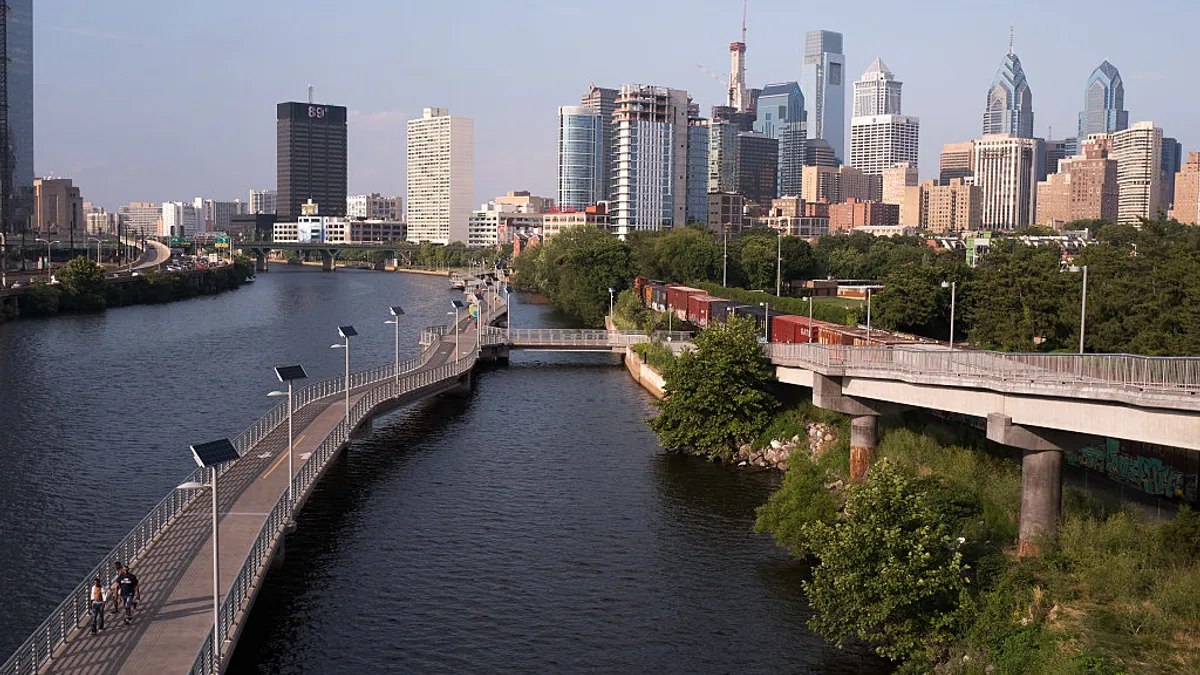Dive Brief:
- The city of Philadelphia recently launched a year-long smart streetlight pilot that will collect information about local pedestrian traffic, street activity and the environment.
- The SmartBlockPHL program will collect real-time data that counts people and objects, monitors air quality and checks for weather conditions via fourteen smart streetlights in Midtown Village. The pilot is designed to only compile metadata, and not collect or store any personally identifiable information.
- The pilot comes at no cost to the city with the exception of installing the streetlights, according to Philadelphia Smart City Director Emily Yates, as it's the result of a partnership facilitated by US Ignite with Comcast. Technology vendor Juganu is also partnering with the city to provide the smart streetlights, which include optical and environmental sensors within the light fixtures.
Dive Insight
Streetlights are gaining steam as a crucial element of the smart city landscape. LED streetlights are expected to become a $28.1 billion market opportunity within this decade.
As more cities make the transition to technology like LED streetlights, there's also an opportunity for local leaders to gain more capacity for collecting real-time data through that new infrastructure, Yates said. The streetlights are really the "backbone" for having the ability to deploy different sensors, she said.
But just as there's a lot of excitement for the possibility of smart streetlights, there's also a lot of caution, according to Yates.
Cost is one concern, she said, as local leaders don't want to purchase technology that will be outdated in a few years.
Privacy is also a significant area of concern for leaders and residents alike, with San Diego's former smart streetlight program offering a cautionary tale for cities. In September 2020, San Diego turned off its controversial smart streetlights following pushback from residents and activists about surveillance and how law enforcement would use the technology.
Yates said that Philadelphia has prepared to prevent a similar situation from occurring. Some of that preparation included the formation of a SmartCityPHL task force that includes eight diverse, independent subject matter experts who will review the city's data management practices while also advising throughout the project. Those task force meetings will be made available to the public as well. The city also intends to share information about the initiative with community groups via presentations and the project site.
The site outlines the pilot's approach to protecting privacy, including detailing the type of data that will be gathered and how it will be used, via a public FAQ. Yates explained that signage is posted at every entrance along the pilot corridor with a QR code and individuals are encouraged to contact the city via email with questions or concerns.
Yates said the team in Philadelphia connected with local leaders from other cities to learn how different municipalities are navigating data collection in the right of way and resident privacy protection. One conversation that stuck out, she said, was with former Boston Chief Information Officer Jascha Franklin-Hodge who emphasized helping to foster community trust via simple web pages that are clear and transparent.













